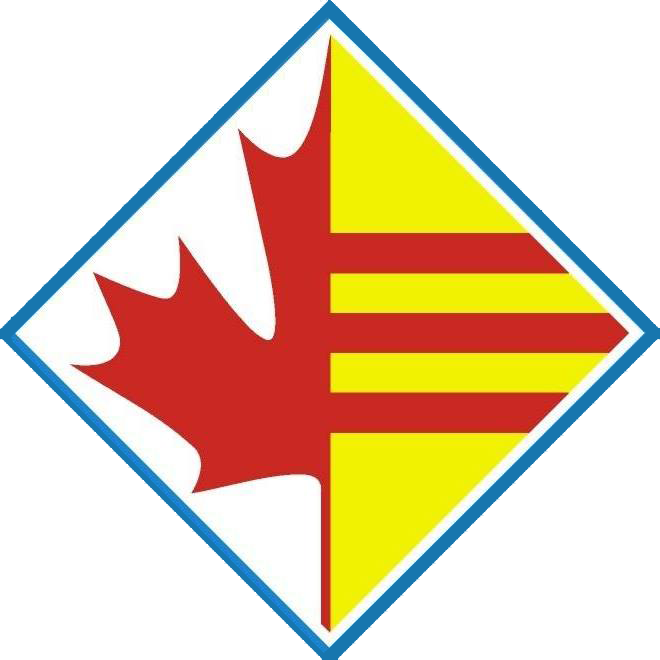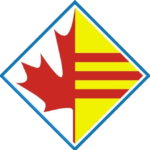I was fortunate, even would say blessed, to meet Dr. Rupert Neudeck. In April 1980, he led the delegation of the Cap Anamur Committee to visit the Vietnamese boat people, whom the Cap Anamur has just rescued, and transferred for temporary settlement in a refugees camp located in Singapore. Dr. Neudeck was a thin, lively man usually sporting a plain white shirt and jeans. He had a gray handbag that dangled alongside his tape recorder, and every boat person he met, he greeted with a warm smile. The Cap Anamur delegation also included Hans Voss and Bärbel Krumme. Hans Voss donated his ship to rescue Vietnamese boat people for three years without any leasing costs, and Bärbel Krumme, a female surgeon, one of the first volunteers on the Cap Anamur committee, provided medical support.
The name ‘Rupert Neudeck’ sounded very strange to me, an unidentified boat person, who has been rescued by the Cap Anamur just a month earlier. Who could have imagined that I would get to follow in his footsteps from the moment Dr. Neudeck rescued me till the day he left this Earth? My journey in Dr. Neudeck’s footsteps started with my close connections with the Cap Anamur Committee and the Green Helmets (both of which he founded). I started to volunteer my time to help rescue other refugees from their long journey out to sea in search for freedom. These experiences flourished and solidified the invisible bonds which merged our two families into one.
During the time he spent rescuing Vietnamese boat people from 1979 to 1988, Dr.
Neudeck faced fierce opposition from most German politicians. When Dr. Neudeck first called for the rescue of Vietnamese boat people, many German extremists threw bags of manure into his house as an act of protest. Many called him a monster or human trafficker. However, Dr.
Neudeck remained steadfast, despite what his wife described as the overwhelming smell of manure in their home.
He openly criticized the rigid bureaucracy of the German government and the indifference of German politicians at the time. On two occasions, the German government forced the Cap Anamur to return to the port of Hamburg because the ship had already boarded more than the pre- approved number of Vietnamese Boat people permitted by the government. However, Dr. Neudeck’s goal was to save as many Vietnamese boat refugees as possible from the treachery of the open seas. Therefore, he risked his life and career in defiance of bureaucratic rules to save Vietnamese boat refugees. He willingly accepted any consequences that may come his way by ordering us each time to extend the rescue time to search longer in hopes of saving more and more Vietnamese Boat people. In May 1982, the final voyage of the Cap Anamur I brought 284 boat people to the port of Hamburg when the remaining pre-approved number at the time was a mere few dozen boat refugees. The Cap Anamur II, after more than three months at sea, returned to Hamburg in June 1986 with 357 boat people, when the remaining pre-approved for resettlement was no more than one hundred refugees. Dr. Neudeck was aware of the potentially dire consequences to his livelihood and career when he forced the German government to take in the additional boat people because the refugees arrived on German-owned ships. As a result of his many trips and defiance, the Cap Anamur rescued 11,300 Vietnamese Boat refugees within three years.
War reveals true misery, and even the most daring would never venture into a warzone, but Dr. Neudeck was no ordinary person. After the Cap Anamur’s missions to Vietnam ended in the late 1980s, Dr. Neudeck journeyed to Afghanistan. At that time, the Soviet Union had invaded the country and brutally massacred hundreds of thousands of innocent people, forcing them to flee into the mountains without food or water. In 1986, Dr. Neudeck entered the country alone, riding a donkey across the countryside disguised as a tattered local. He met with the Afghan resistance (Mudschaheddin) against the Russian invaders near the Pakistani border and provided them with food and medicine. On one occasion, Russians in helicopters discovered Dr. Neudeck and his group; the Russians chased them with machine guns and rockets, forcing Dr.
Neudeck to hide for more than thirty hours. Two group members and one donkey died from gunshots. When asked about the incident later, he said he did not believe he would escape death that day. He said what kept him alive were images of his three children and his faith that God would protect him, which gave him the strength to keep running, and eventually, his escape and survival.
In the ensuing years, Dr. Neudeck became no stranger to war. In 1987, the military dictator, Milton Obote, massacred the population of Uganda, causing many people to flee to the Sudanese border. Dr. Neudeck ventured into Uganda to help, and at one checkpoint, was held at gunpoint and tortured by the military before they would let him pass. In 1988, while helping Eritrean refugees, a series of bombs were dropped where he was staying. He followed a group of refugees to hide deep in a tunnel for several hours before coming out of hiding. Even recently, in 2013, while helping refugees in Syria, three of his fellow “Green Helmets” members were kidnapped by rebels, whom Dr. Neudeck helped free after three months of imprisonment.
Dr. Neudeck’s love and generosity extended far beyond rescuing refugees. In 1986, when he rescued a young Vietnamese boy, who escaped by boat without any relatives, Dr. Neudeck immediately adopted him. Three years later, Dr. Neudeck learned that the boy’s biological father had survived the war and recently resettled in the United States. Dr. Neudeck contacted me to help arrange the reunion. As a result, the Vietnamese-American community heard about Dr.
Neudeck’s generosity and was incredibly grateful for his kindness towards Vietnamese refugees. In appreciation, the Vietnamese-American community was present when Dr. Neudeck landed in the United States to unite the adopted Vietnamese son with his biological father. The reunion brought many tears of happiness to and great appreciation by those present.
The legacy of Dr. Neudeck’s work and life could be felt well after the Cap Anamur missions to Vietnam. After Dr. Neudeck had his first heart surgery, he woke up to discover that the heart surgeon who saved his life was a Vietnamese boat person whom Dr. Neudeck had rescued aboard the Cap Anamur when the surgeon was just three years old. Dr. Neudeck held the surgeon’s hand and said: “In the past, I saved your life and the lives of Vietnamese people. This year, you saved mine. The debt that Vietnamese people felt they owe me, is repaid.”
Outside of Dr. Neudeck’s undertakings, Dr. Neudeck led a simple life. He once shared that he always traveled by train because he received a fifty percent discount on all train tickets. He even refused offers from event planners to stay at five-star hotels for a budget option. Even in Germany, every time he went to Hamburg or North Germany, he would spend the night at my house. Even as a visitor, he never wanted to burden my family, always insisting on preparing his own meals, which would often be a simple dish like chicken noodle soup or simply having a slice of bread with water.
In his final years, the greatest joy he had was playing with his five grandchildren. He did not want anyone to disturb him when his grandchildren visited him. I can still vividly see the image I once witnessed – a thin older man bent down to crawl on his knees as his three-year-old grandson rode on his back like a horse. He loved and cherished his grandchildren, and they cherished and loved him.
At the age of seventy-seven, Dr. Rupert Neudeck passed away at 8 a.m. on May 31st, 2016. His family had a quiet funeral for him on June 8th, 2016, with about thirty family members and close friends. His coffin was as simple as the life he led: unpainted, without flowers or candles, and lying alone on the steps of the Holy Palace in the small church near his house. His children and relatives carried him to his final resting place in a small cemetery in Troisdorf. Those at the funeral bid him farewell with handfuls of soil and wildflower petals growing by the roadside. True to my promise to his wife, I respectfully placed a bronze bust of him on the grave. A week later, on June 14th, 2016, the Archbishop of Koeln and his family held a mass in his memory at the Basilica of St. Aposteln. Nearly two thousand people attended; most were Vietnamese boat people from all over Germany and other parts of Europe. In addition, many Vietnamese people in pagodas and the Vietnamese Catholic communities across Germany simultaneously held memorial ceremonies to pray for him as a gesture of gratitude and mourning for the benefactor who saved their lives and the lives of their family members.
Dear Dr. Rupert Neudeck, wherever you are now, one thing is for sure, you are still alive in this world. You live in our hearts — the hearts of Vietnamese refugees and every refugee out there.
Nguyen Huu Huan In memory of Dr. Rupert Neudeck
Hamburg, July 2016
Note: With the author’s consent, this is an abridged and translated version of Nguyen Huu Huan’s article, “Dr. Neudeck: Sống Thanh Đạm, Hoạt Động Cao Cả,” by Le Duy Nam and edited by Diane Pham.

